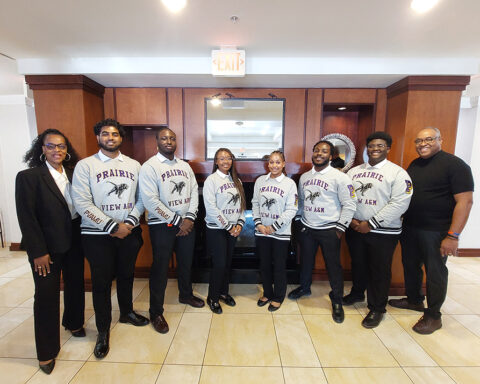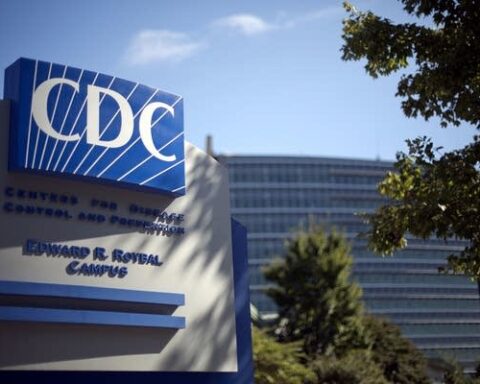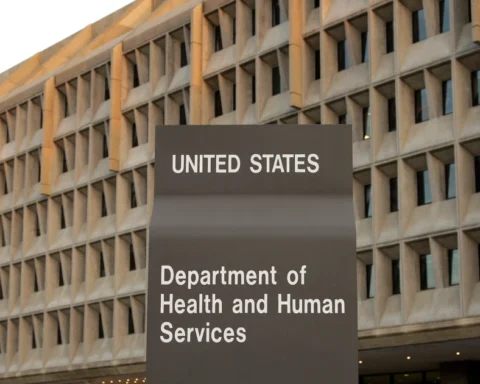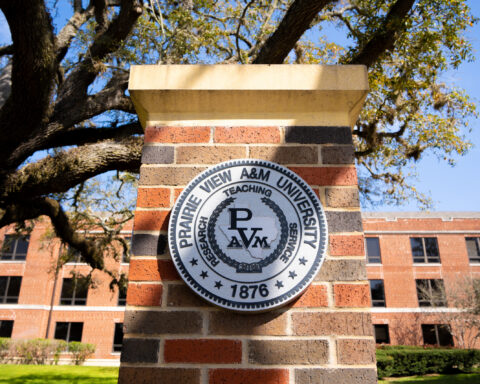By Andrew Cohen
Tiffany D. Thomas ‘08 could barely hide her excitement when she learned she would receive the UNCF’s John and Drucie Chase Young Builders Award, which annually honors a leader in education.
The Prairie View A&M University alumna, program coordinator and assistant professor of community development in the School of Architecture at PVAMU was nominated by the Houston Leadership Council of UNCF for her efforts inside and outside the classroom.
Thomas describes her work in the classroom as being akin to “community labs, where we work directly with neighborhoods and their issues to provide research-based outcomes.”
An admirer of the award’s namesake John Chase, the first licensed Black architect in Texas who was a “pillar in the community,” Thomas was all set for a vibrant and engaging in-person awards ceremony. “I had a dress; I was going to have a table,” Thomas said, a little wistfully. But if a virtual ceremony was a bit of a letdown, it did have the benefit of saving time, something that Thomas has in short supply at the moment.
On the same day the UNCF award was announced, Thomas learned that her efforts had also resulted in a $292,039, two-year grant from the Centers for Disease Control and Prevention and the Department of Health and Human Services. The grant is part of a $2.25 billion national initiative to address COVID-19 health disparities among underserved and high-risk populations, including racial and ethnic minority populations and rural communities.
Thomas’ initial tasks were to create a tentative work plan and budget. In addition, she posted positions for two undergraduate assistants and one graduate assistant who would work with the Texas Department of State Health Services, concentrating on outreach in Waller County.
“Our work will focus on engaging with the Waller County community and learning how they would prefer to receive information and communication in and out of a pandemic. We will also host in-person and virtual sessions to learn more about their priorities,” Thomas said. “It’s something I’m really excited to be involved with.”
PVAMU is the only Texas HBCU part of the initiative. Thomas views this as an incredible opportunity to extend the institution’s reach across the county. Rural areas, she noted, don’t enjoy the same governmental resources or access points for health or health information.
“This is an opportunity for the community development graduate program to raise our profile, put out meaningful research and go into rural communities – something we have not focused on in the last few years,” said Thomas. “We have an opportunity to become an authority on the rural community that surrounds us, and as a land grant institution, this helps us amplify our original mission.”
Thomas, whose work includes the creation of a rural community needs assessment tool to influence health outcomes, said that her program’s relationship with the Texas Department of State Health Services dates from 2018, when she and one of her classes performed a community needs assessment for the City of Prairie View.
“The agency was really interested in doing a lot of outreach in Waller County but didn’t have an apparatus to do so,” Thomas said. “So, we started this relationship and began sharing information. Of course, with COVID, the CDC initiated some funding with the state department of health. Our region’s COVID vaccination rate was not as competitive as others.”
The CDC’s announcement of the initiative noted evidence showing that “racial and ethnic minority groups and people living in rural communities have disproportionate rates of chronic diseases that can increase the risk of becoming severely ill from COVID-19. They may also encounter barriers to testing, treatment or vaccination.”
The funding, “which represents CDC’s largest investment to date to support communities affected by COVID-19-related health disparities,” marks a move toward greater health equity.
“This grant isn’t your typical research project,” said Thomas. “We will activate engaged research methods to support, outline and communicate the priorities of the greater Waller County community with the hope that if there is future funding, Waller County will be able to quickly apply and receive support based on our initial work. With COVID-19 fatigue and most of the nation transitioning back to pre-pandemic times, we have an opportunity to have a broader conversation in general about how residents would like to receive information related to a pandemic, vaccinations, disaster recovery and even social services.”
“Secondly, how can we inform officials in the county on the next steps in terms of what they need to do in order to prepare? Is it creating a dashboard, is it utilizing a county-wide text system like they use in Harris County, and is it important to do so in multiple languages?”
Thomas and others in the community development program have had ongoing discussions about the project’s flexibility—the CDC intended to center the initiative on COVID-19 and then decided to add influenza.
“We know we will have to pivot a number of times throughout 2022 and 2023,” Thomas said. “But everybody’s excited, and I’m particularly looking forward to our students being able to participate in real, engaged work that will benefit our state and region. I am also appreciative of the support from Waller County Judge and the commissioners as they are key partners in this work.”





